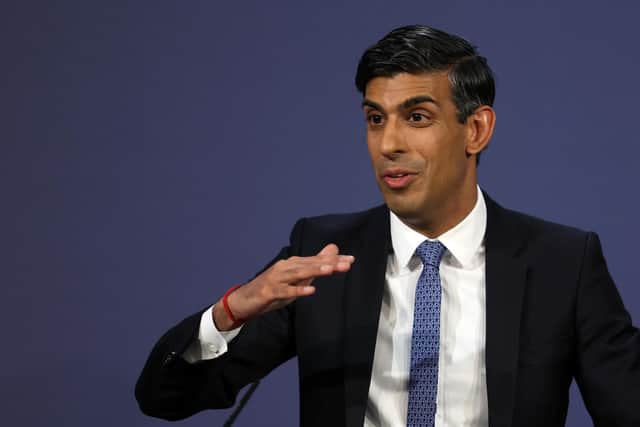Rishi Sunak’s public sector worker pay offer doesn’t impact Scotland - but where the money comes from does
On paper, the announcement that Rishi Sunak was going to hike public sector pay in England should be cause for celebration.
If accepted, as it appears it will be, it’s a salary bump for workers in dire need of one, feeling undervalued and underpaid by the UK Government.
Advertisement
Hide AdAdvertisement
Hide AdTeachers, doctors, nurses, all of whom have been on frequent strikes south of the border will now get more for their work, with the Prime Minister accepting the pay review body recommendations.


What of Scotland, then, where Humza Yousaf’s Government last week agreed to increase the pay of junior doctors by 12.4 per cent in a major last-ditch concession to avoid strike action. SNP ministers have also agreed pay settlements for teachers, up seven per cent this financial year.
Surely with pay rises in England, sweet nuggets of Barnett will be finding their way up the road? No, no they will not. Because, as is becoming the trend with this UK Government, there are always caveats.While there are pay boosts for public sector workers, it is not coming from an increase to budgets, there is no bump in resources. Instead, unions are warning that while staff will be better paid, they’ll be expected to do more with less.
Some of the money will come from a rise in visa fees and fees for migrant workers using the health service, but there are no figures of how much, no numbers to crunch. Instead it’s another Government announcement of intent without explanation, a premiership of fiscal vibes rather than responsibility.
Mr Sunak has insisted this will not result in new borrowing or cuts to the front line, but that’s not the point. The budget is the same, and there’s likely to be less of it.
This is now the mean rather than an outlier of the Westminster Government. Promising to address the needs of a cost of living crisis while announcing more and more long-term cuts to departmental budgets.Consider the last budget, in which Jeremy Hunt announced brutal austerity measures, or rather hid them, with £35 billion in spending cuts delayed until 2025, with another £24 billion of tax increases this year.
These are tough decisions, but one whose consequences the Tories are counting on not being around for, with the growing expectation of a Labour government. Under the current strategy, there are no spending cuts, and these will then escalate over the next three years, according to Treasury figures.
Liam Byrne, chief secretary to the Treasury under Gordon Brown, once left a note for his successor which became a Tory campaign staple, saying “I’m afraid there is no money”. Rather than joking about it, this Government is planning for it, setting fiscal restraints for the future rather than conjuring a plan to address them now.
Advertisement
Hide AdAdvertisement
Hide AdThe next Government will have to maintain these pay rises across the UK, knowing cuts to the budgets are priced in. The decision directly impacts England, but long-term, Scotland will have to do more with less.
Comments
Want to join the conversation? Please or to comment on this article.
